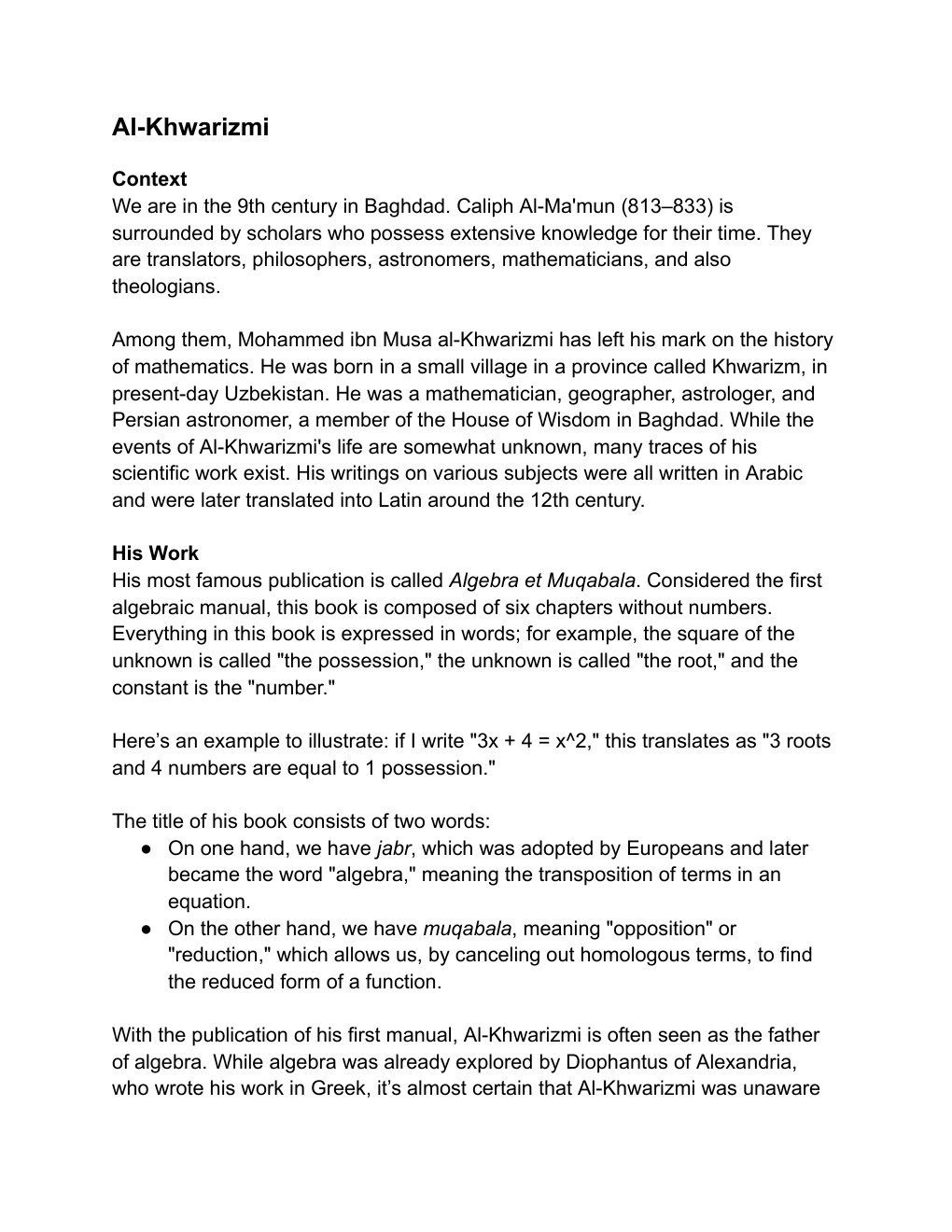Presentation Al Khwarizmi
Publié le 25/06/2025
Extrait du document
«
Al-Khwarizmi
Context
We are in the 9th century in Baghdad.
Caliph Al-Ma'mun (813–833) is
surrounded by scholars who possess extensive knowledge for their time.
They
are translators, philosophers, astronomers, mathematicians, and also
theologians.
Among them, Mohammed ibn Musa al-Khwarizmi has left his mark on the history
of mathematics.
He was born in a small village in a province called Khwarizm, in
present-day Uzbekistan.
He was a mathematician, geographer, astrologer, and
Persian astronomer, a member of the House of Wisdom in Baghdad.
While the
events of Al-Khwarizmi's life are somewhat unknown, many traces of his
scientific work exist.
His writings on various subjects were all written in Arabic
and were later translated into Latin around the 12th century.
His Work
His most famous publication is called Algebra et Muqabala.
Considered the first
algebraic manual, this book is composed of six chapters without numbers.
Everything in this book is expressed in words; for example, the square of the
unknown is called "the possession," the unknown is called "the root," and the
constant is the "number."
Here’s an example to illustrate: if I write "3x + 4 = x^2," this translates as "3 roots
and 4 numbers are equal to 1 possession."
The title of his book consists of two words:
● On one hand, we have jabr, which was adopted by Europeans and later
became the word "algebra," meaning the transposition of terms in an
equation.
● On the other hand, we have muqabala, meaning "opposition" or
"reduction," which allows us, by canceling out homologous terms, to find
the reduced form of a function.
With the publication of his first manual, Al-Khwarizmi is often seen as the father
of algebra.
While algebra was already explored by Diophantus of Alexandria,
who wrote his work in Greek, it’s almost certain that Al-Khwarizmi was unaware
of Diophantus's work, as the first Arabic translation of....
»
↓↓↓ APERÇU DU DOCUMENT ↓↓↓
Liens utiles
- PRESENTATION DE L'ETHIQUE A NICOMAQUE DE ARISTOTE
- PRESENTATION DE "L'IDEOLOGIE ALLEMANDE" DE MARX ET ENGELS
- PRESENTATION DE L'OUVRAGE "DISCOURS DE LA METHODE DE DESCARTES
- PRESENTATION DE LA "LETTRE A MENECEE" D'EPICURE: Le plaisir est notre bien principal et inné

































